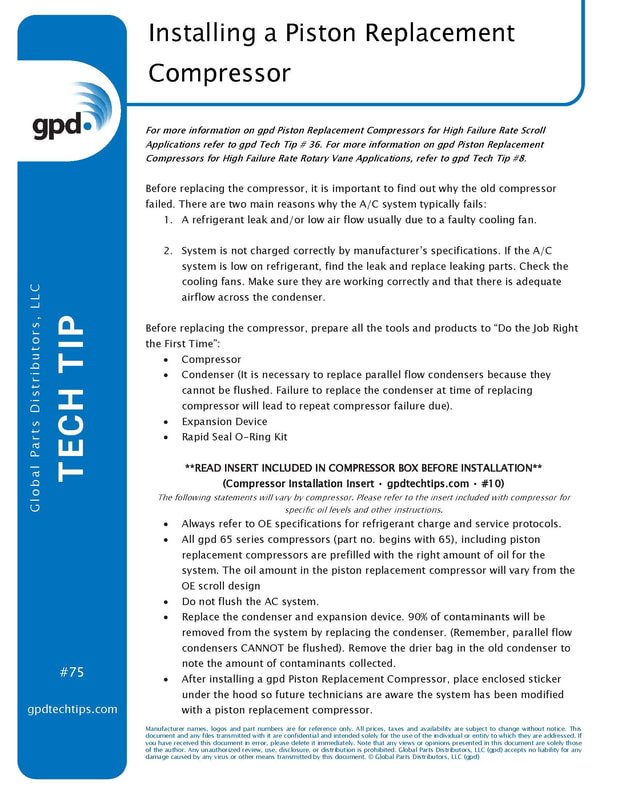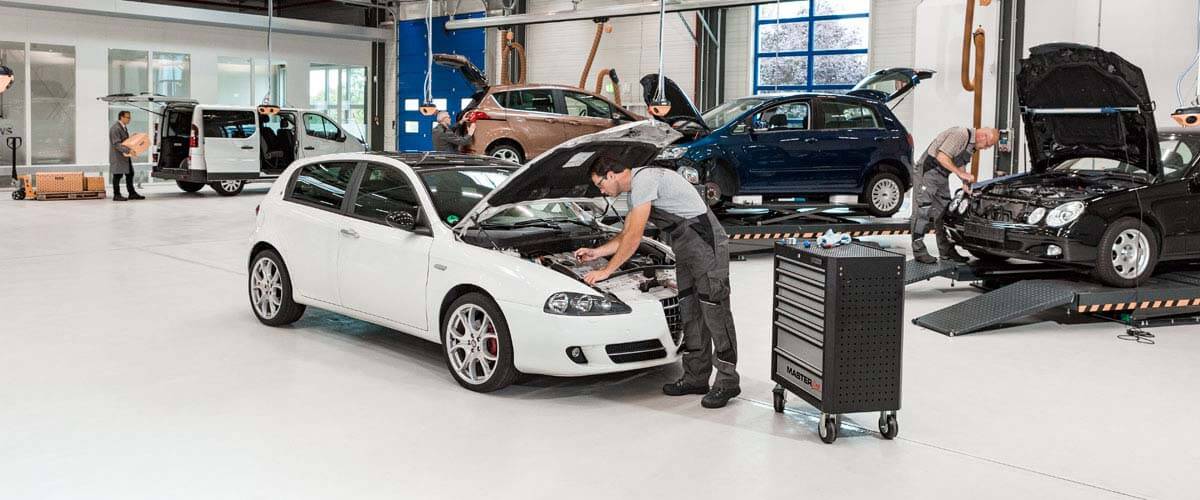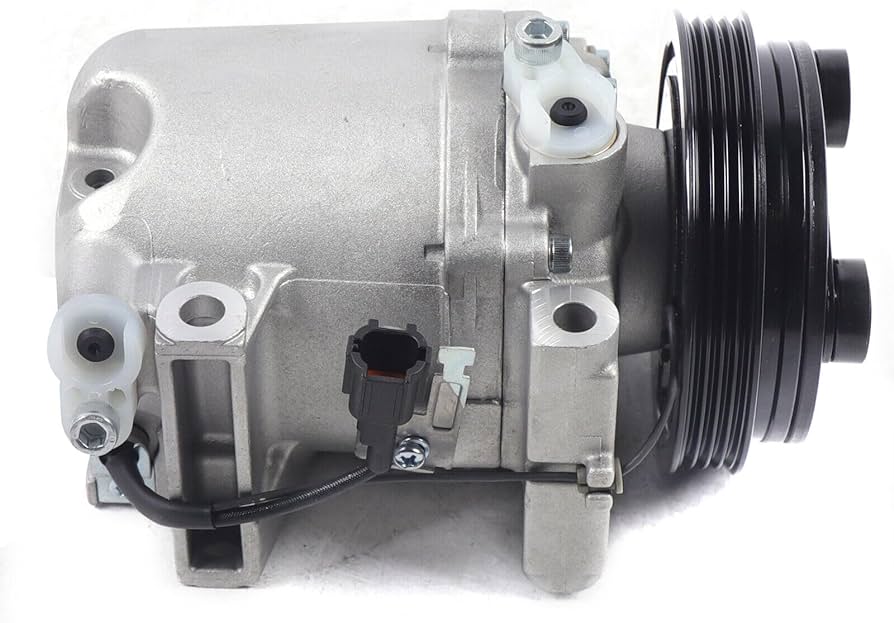Subaru primarily uses the R-134a refrigerant in its vehicles. Newer models have transitioned to the environmentally friendlier R-1234yf.
Subaru vehicles are known for their reliance on quality materials and advanced automotive technologies, ensuring both performance and environmental responsibility. As climate concerns grow, and regulations become stricter, the auto industry shifts towards more sustainable options, like the R-1234yf refrigerant.
This transition aligns with Subaru’s commitment to reducing its carbon footprint while maintaining the comfort and safety standards that drivers expect. The introduction of R-1234yf, with its lower global warming potential, reflects Subaru’s dedication to eco-friendliness without compromising on the robust, all-weather capabilities synonymous with the brand. Owners of Subaru vehicles can have confidence in their car’s compliance with environmental guidelines and its continued high efficiency and performance.

Credit: www.amazon.com
Subaru’s Choice Of Refrigerant

Credit: www.gpdtechtips.com
Subaru’s Transition To Eco-friendly Options
Subaru has always paved the way for innovative automotive solutions. The brand is now shifting gears towards an eco-friendlier approach with its refrigerants. Let’s explore how Subaru’s eco-conscious decisions are helping shape a greener future.
Historical Refrigerants And Environmental Impact
Not long ago, vehicles, including Subarus, used refrigerants that harmed the environment. These substances, known as CFCs and HFCs, contributed to ozone layer depletion and global warming. Subaru recognized this issue and began searching for better options.
- CFCs (Chlorofluorocarbons): Caused significant ozone depletion.
- HFCs (Hydrofluorocarbons): Less ozone impact but high global warming potential.
Latest Eco-friendly Refrigerants Used By Subaru
Subaru has transitioned to refrigerants that have less impact on the environment. The most notable is the R-1234yf refrigerant. It has a global warming potential that is over 99% less than previous refrigerants used.
| Refrigerant Type | Global Warming Potential | Usage in Subaru Models |
|---|---|---|
| R-1234yf | Less than 1 | Used in most recent models |
| Old HFCs | 1,430 | Phased out |
By embracing R-1234yf, Subaru not only adheres to strict environmental regulations but also shows its commitment to sustainability. This bold step ensures that drivers enjoy cool comfort without compromising the planet’s health.
Current Refrigerants In Market Comparison
Understanding the variety of refrigerants used in vehicles today is crucial for choosing an eco-friendly and efficient option. This comparison sheds light on the refrigerants dominating the market and where Subaru stands among its competitors.
Advantages and Disadvantages of Commonly Used RefrigerantsAdvantages And Disadvantages Of Commonly Used Refrigerants
Refrigerants play a key role in air conditioning systems. They absorb heat and create a cooling effect. Here’s a glance at the pros and cons of different types:
| Refrigerant | Advantages | Disadvantages |
|---|---|---|
| R-134a |
|
|
| R-1234yf |
|
|
Subaru Refrigerant In The Competitive Landscape
Subaru uses R-134a and is transitioning to R-1234yf, aligning with industry trends. Compared to competitors, Subaru is committed to sustainability and safety, selecting refrigerants that meet strict standards without compromising performance.
- R-134a has been the common choice due to its reliability and safety, but due to environmental concerns, its usage is on the decline.
- R-1234yf, newer in the market, offers a greener alternative, with a 99.7% decrease in global warming potential compared to R-134a.
In conclusion, Subaru demonstrates awareness and adaptability within the competitive landscape, ensuring that both the planet’s well-being and customer satisfaction are well catered to.

Credit: www.hella.com
Understanding Refrigerants’ Role In Vehicle Cooling
Vehicle cooling systems use refrigerants to manage temperature. The right refrigerant ensures your Subaru stays cool. This post explores refrigerants in Subaru vehicles.
Function Of Refrigerant In Subaru Cooling Systems
Refrigerants absorb heat from the car’s interior. Then they release it outside. This keeps your Subaru’s cabin comfortable.
- Transport heat: Moves warmth from inside to outside.
- Change states: Shifts from gas to liquid and back.
- Circulation: Travels in a loop to repeat the process.
Impact Of Refrigerant On Vehicle Performance
Choosing the right refrigerant affects your Subaru’s performance. Proper refrigerants yield better fuel efficiency and reliability.
| Attribute | Impact |
|---|---|
| Fuel Efficiency | Saves fuel |
| Reliability | Reduces breakdowns |
| Environment | Less ozone damage |
Subaru uses coolants that meet strict standards. This ensures your vehicle runs smoothly.
Choosing The Right Refrigerant For Your Subaru
Selecting the appropriate refrigerant for your Subaru is crucial for optimal performance. Subaru vehicles typically use R-134a or R-1234yf, depending on the model and year. Always consult your owner’s manual or a certified Subaru mechanic to ensure compatibility.
When it comes to maintaining your Subaru’s air conditioning (AC) system, using the correct refrigerant is crucial. A refrigerant is a substance that absorbs heat and helps keep the inside of your car cool. Subaru vehicles require specific types of refrigerants designed to work efficiently with their AC systems. The right choice ensures optimal performance, longevity, and compliance with environmental regulations.
Oem Recommendations Vs. Aftermarket Options
Subaru recommends using the refrigerant specified in your vehicle’s owner manual. OEM (Original Equipment Manufacturer) refrigerants are designed to match your Subaru’s AC system. They are tested for compatibility and efficiency. Aftermarket refrigerants may boast lower prices but could pose risks. These risks include system damage or reduced cooling efficiency. Find out the exact type your Subaru uses to avoid AC troubles.
Tips For Purchasing Compatible Refrigerants
Here are quick tips to follow when buying refrigerant for your Subaru:
- Check the owner’s manual for the specific type of refrigerant recommended for your model.
- Look for refrigerants that meet Subaru’s specifications.
- Ensure the refrigerant is marked as non-ozone-depleting, adhering to environmental standards.
- Seek advice from trusted Subaru mechanics or dealerships for recommendations.
- Purchase from reputable suppliers to avoid counterfeit products.
Whether using an OEM or aftermarket refrigerant, compatibility with your Subaru is non-negotiable for peak AC performance.
Maintenance And Upkeep Of Subaru’s Ac System
Subaru vehicles are known for their reliability and performance, even in harsh climates. To maintain the comfortable cabin environment, especially during summer months, the AC system must function efficiently. Proper maintenance and timely servicing are key. This includes ensuring the system is clean, functional, and well-charged with the correct refrigerant Subaru uses.
Regular Servicing For Optimal Cooling
Regular maintenance checks keep your Subaru’s AC system at peak performance. These checks should include:
- Inspection of the belts and hoses.
- Cleaning or replacing the air cabin filter.
- Checking system pressures.
- Testing the compressor’s functionality.
Technicians may also perform a cooling efficiency test. They check for proper airflow and cooling capacity. Schedule these services at least once a year for optimal cooling.
Detecting And Fixing Refrigerant Leaks
A key aspect of maintenance is ensuring there are no refrigerant leaks. Leaks not only reduce efficiency but can lead to bigger system issues. Signs of a potential leak include:
- Air that isn’t as cool as usual.
- Hissing sounds from the AC vents.
- The presence of a sweetish chemical smell.
Technicians use special detection methods to pinpoint leaks. They might use UV dyes or electronic detectors to find and fix them. Regular leak checks prevent minor issues from becoming major repairs.
Using the proper type of refrigerant is crucial. The majority of Subaru models use R-134a. Some newer models may use R-1234yf, a more environmentally friendly option. Always consult your Subaru’s manual or a professional mechanic to determine the correct refrigerant for your vehicle.
Diy Versus Professional Servicing
Subaru vehicles ensure your comfort with efficient air conditioning systems. Knowing when to tackle refrigerant issues yourself versus seeking professional servicing is crucial. This guide helps Subaru owners make informed decisions about their AC system care.
When To Handle Refrigerant Issues Yourself
DIY refrigerant handling can be tempting for Subaru owners. Before attempting, know your limits. Here are situations where DIY might be appropriate:
- Refilling with Subaru-approved refrigerant if you have experience.
- Performing basic inspections, like checking for leaks in accessible areas.
- Cleaning or replacing the cabin air filter to improve airflow.
Remember, if you’re unsure about DIY, it’s best to call a professional. Mistakes with refrigerant can harm your Subaru and the environment.
Benefits Of Professional Servicing For Subaru’s Ac System
Professional servicing guarantees expert care for your Subaru’s AC system. Below are key advantages:
| Benefit | Explanation |
|---|---|
| Expert Knowledge | Technicians use the correct refrigerant and service techniques specific to Subaru models. |
| Specialized Tools | Diagnosis and repair requires tools like refrigerant identifiers and recovery machines. |
| Warranty Preservation | Professional services ensure your Subaru’s warranty remains intact. |
| Environmental Safety | Technicians follow laws to prevent refrigerant release and ensure safe disposal. |
Always opt for professional servicing for complicated issues, such as repairing leaks, or when specialized equipment is needed. Trust certified Subaru technicians to maintain peak performance and comfort.
Implications Of Using Incorrect Refrigerants
Subarus are known for endurance and performance. Part of that performance comes from the right refrigerant in the air conditioning system. Using the incorrect refrigerant can negatively impact the system’s efficiency and even the environment.
Risks Associated With Wrong Refrigerant Choices
Subaru vehicles are designed to work with specific refrigerants. When the wrong refrigerant is used, it can cause:
- Damage to the Compressor: The heart of the AC system could fail.
- Inadequate Cooling: AC won’t properly chill the cabin.
- System Corrosion: Wrong refrigerants lead to internal decay.
- Potential Safety Hazards: Incorrect substances may lead to reactions that could compromise safety.
- Voided Warranty: Not adhering to Subaru guidelines can void your warranty.
Long-term Costs Of Improper Refrigerant Use
Selecting the right refrigerant ensures peak performance and longevity. The wrong choice could mean:
- Hefty Repairs: Fixing damage from incompatible refrigerants can be costly.
- Decreased Performance: Over time, your Subaru’s AC system might degrade faster.
- Environmental Impact: Some refrigerants are harmful to the ozone layer.
- Increased Fuel Consumption: A struggling AC system can lower fuel efficiency.
- Legal Implications: Using banned refrigerants could lead to fines or legal action.
Future Of Cooling Technologies In Subaru
The future of cooling technologies in Subaru vehicles is promising. These advancements will redefine comfort, performance, and sustainability. Subaru consistently pioneers innovation, not just in engine performance but also in climate control systems. Examine key developments that signal a refreshing outlook on automotive cooling.
Innovations In Automotive Climate Control
Subaru is at the forefront of climate control technology. Innovative features and systems are set to transform the way we experience comfort in our cars. These advancements include:
- Enhanced Compressor Efficiency – This reduces energy consumption while maintaining optimal cabin temperatures.
- Smart Thermostatic Control – It adapts to ambient conditions, ensuring consistent cooling performance.
- Integration with Electric Vehicle Technology – As Subaru explores electric vehicles, cooling systems become even more crucial to battery health and performance.
These trends highlight a shift towards more energy-efficient and intelligent cooling solutions in vehicles.
Subaru’s Commitment To Sustainable Cooling Solutions
Subaru’s initiative in adopting eco-friendly refrigerants speaks volumes about their commitment to the environment. These refrigerants:
- Have Lower Global Warming Potential (GWP) – Thus, they are kinder to the planet.
- Improve Energy Efficiency – They require less energy, leading to better fuel economy.
- Are Compatible with Newer Models – Subaru designs systems that work seamlessly with these sustainable options.
As Subaru vehicles evolve, expect a relentless push towards refrigerants and systems that minimize environmental impact.
Frequently Asked Questions Of What Refrigerant Does Subaru Use
What Ac Refrigerant Does Subaru Use?
Subaru vehicles typically use R-134a or R-1234yf refrigerant. Recent models, from 2017 onwards, are more likely to contain R-1234yf, which is environmentally friendly. Always check your owner’s manual for specific information on your model.
When Did Subaru Switch To 1234yf?
Subaru began using the refrigerant R-1234yf in their vehicles starting with the 2017 model year.
How Do I Recharge My Ac In My Subaru?
To recharge your Subaru AC, purchase the correct refrigerant, locate the low-pressure service port under the hood, and attach the refrigerant canister with a hose. Monitor the pressure gauge closely to ensure proper filling without overcharging. Always follow your Subaru’s specific instructions for safety and best results.
What Cars Use R134a Refrigerant?
Many vehicles manufactured between 1994 and 2021 use R134a refrigerant, including cars, trucks, and SUVs from various brands and models. Always check the vehicle’s manual or identification sticker for specific refrigerant types.
Conclusion
Understanding the specific refrigerant type your Subaru requires is key to ensuring optimal performance. Trust genuine Subaru-certified coolants to keep your vehicle running smoothly. Regular maintenance checks will safeguard your air conditioning system, avoiding costly repairs. Choose the right refrigerant, and enjoy a comfortable, eco-friendly ride.

